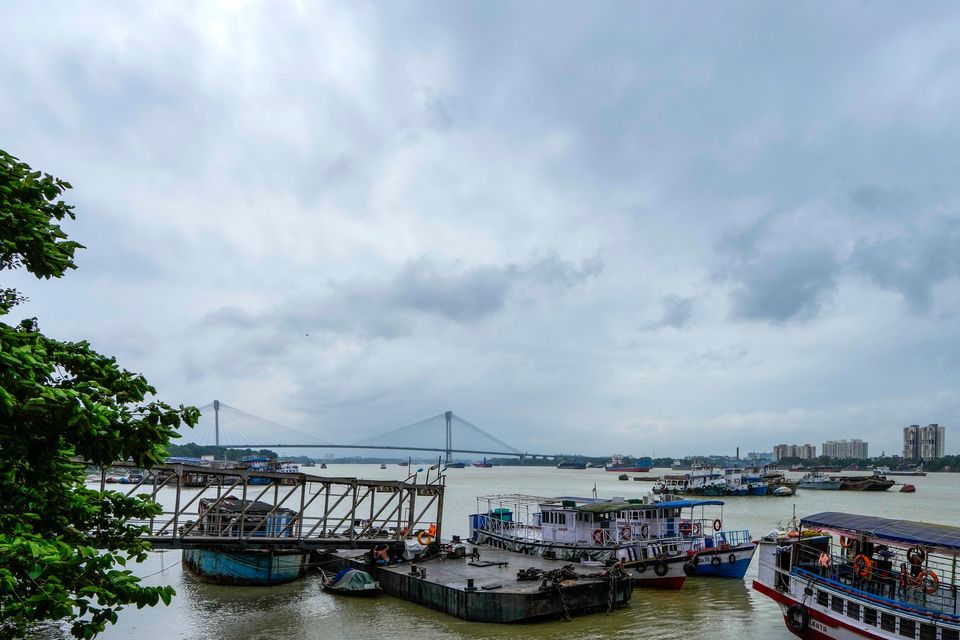Tropical Storm Dana has made landfall along India’s eastern coast, uprooting trees with torrential rains and strong winds.
The storm entered Odisha state on Thursday night with maximum sustained winds of around 68 miles per hour and gusts are expected up to 75 mph, according to the Indian Meteorological Department.
Officials told the Press Trust of India news agency that the landfall process is expected to continue into Friday as the storm pushes further into northern Odisha, before gradually weakening over the next few hours.
Boats were left moored on the Hooghly River and ferry services were suspended as Tropical Storm Dana approached land (Bikas Das/AP)
As it made landfall, the storm pounded some districts in Odisha and neighbouring West Bengal state with heavy downpours as gusty winds brought down trees, local media reported.
As of early Friday, there were no deaths nor any major damage reported.
Climate scientists say severe storms are becoming more frequent in South Asia. Global warming driven by planet-heating gases has caused them to become more extreme and unpredictable.
Indian authorities began preparing for the storm earlier in the week. In Odisha, nearly 600,000 people were evacuated from high-risk zones and several teams of rescue and aid workers have been deployed.
Schools were closed, more than 200 trains were cancelled and flights to and from the capital cities of Odisha and West Bengal were suspended.
Authorities were on high alert for damage in three districts in Odisha, where the weather department forecast a sea surge of around 1 meter (yard) during the landfall process, which could further flood low-lying areas.
We need your consent to load this Social Media content. We use a number of different Social Media outlets to manage extra content that can set cookies on your device and collect data about your activity.
India’s eastern coasts have long been prone to cyclones, but the number of intense storms is increasing along the country’s coast.
2023 was India’s deadliest cyclone season in recent years, killing 523 people and costing an estimated 2.5 billion dollars (£1.9 billion) in damage.
